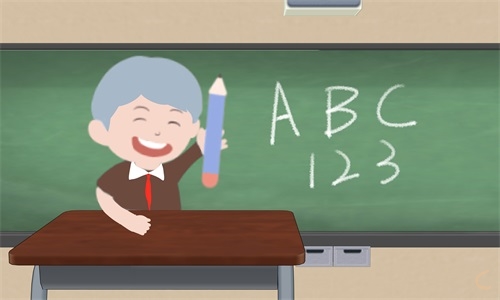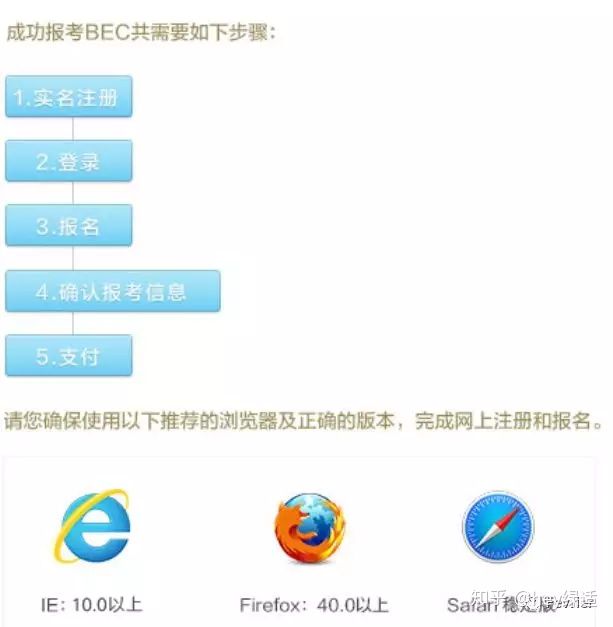今天给大家带来although的用法总结大全,快来一起学习吧,下面小编就和大家分享,来欣赏一下吧。
although的用法总结大全
although的意思
conj. 尽管;虽然;但是;然而
although与though的用法及区别
1. 用作连词,表示“虽然”,两者大致同义,可换用,只是 although 比 though 更为正式。如:
Though [Although] they’re expensive, people buy them. 虽然它们很昂贵,人们还是买。
2. although 一般不用作副词,而 though 可用作副词,表示“可是”“不过”。如:
I expect you’re right—I’ll ask him, though. 我认为你说得对——我去问问他也好。
She promised to phone. I heard nothing, though. 她答应要打电话来. 可我没听到回信儿。
这样用的though通常位于句末,但有时位于句首的though也有这样的意思。如:
他说他要付钱,然而我认为他不会付的。
正:He says he’ll pay, though I don’t think he will.
正:He says he’ll pay; I don’t think he will, though.
3. 在 as though(好像,仿佛),even though(即使,纵然)等固定短语中,不能用 although代替though。如:
She treats me as though I were a stranger. 她待我仿佛我是一个陌生人。
He’s the best teacher even though he has the least experience. 他尽管经验最少,但教得最好。
4. 两者均可用于省略句,通常见于主句与从句主语相同,且从句谓语含有动词be的情形。如:
Although [Though] (it was) built before the war, the engine is still in perfect order. 尽管是战前制造的,这台发动机仍然处于良好状态。
Although [Though] (he is) still young he is going very grey. 尽管他还年轻他的头发却已变得灰白。
Although [Though] (she was) in pain, she bravely blinked back her tears. 她虽然很疼痛,但还是硬把眼泪抑制住了。
5. 当though用于倒装形式,它不能换成although,但可换成as。
Successful though [as] he is, he is not proud. 他虽然成功,但不骄傲。
Much though [as] I like you, I couldn’t live with you. 我尽管很喜欢你, 却不能和你在一起生活。
Try though [as] I would, I could not make her change her mind. 不管我多努力,也不能让她改变主意。
Surrounded though [as] we were by the enemy, we managed to march forward. 虽然我们被敌人包围着,但我们还是设法前进了。
Raining hard though [as] it is, I’m going out for a walk. 虽然正在下着大雨,我还是要出去散步。
注意,若倒装后置于句首的是名词时,其前习惯上不用冠词或其他限定词。如:
Expert though [as] he was, he failed. 他虽是专家,但还是失败了。
Big puzzle though [as] it was, it hadn’t got the better of Jim. 虽然是个大难题,但仍没有难倒吉姆。
6. 不要按汉语“虽然……但是……”的表达习惯,在 although 后连用 but。如:
虽然他只是个业余爱好者,但却是一流的高手。
误:Although he’s only an amateur, but he’s a first-class player.
正:Although he’s only an amateur, he’s a first-class player.
但是在强调时,although 可与 yet, still 等副词连用。如:
Though he seems happy, yet he is worried. 虽然他看起来很幸福,但他实际上很烦恼。
值得一提的是,在某些特定的语境中,although 与 but 连用的句子是可能的(注:but 引出的句子在 although 从句之前)。如:
But I didn’t know that then, although I learned it later. 但我当时的确不知道此事,尽管后来还是知道了。
He wanted to go abroad, but although he had some money he couldn’t afford it. 他想出国,尽管他有些钱,但还是负担不起。
although的用法例句
1. Although he was only grumbling, his choice of words made Rodney angry.
尽管他只是在咕哝,可是他的措词却让罗德妮恼火。
2. Although they're expensive, they last forever and never go out of style.
尽管价格昂贵,但它们经久耐用,永不过时。
3. Although people sometimes buy property sight unseen, it'sa remarkably bad idea.
尽管人们有时没看房就买了房,但这真是一个很糟糕的主意。
4. Although this recipe looks long, it is actually very quick to prepare.
尽管这个菜谱看上去很长,其实做起来很快。
5. I was never really happy there, although the people were kindness itself.
我在那里从来没有真正高兴过,虽然那里的人们非常亲切。
6. Although the coral looks hard, it is very delicate.
珊瑚虽然看上去坚固,实际上非常易碎。
教你正确使用Although/Though/Even though/Despite/In spite of/Albeit
Although, Though, Even though,
Despite, In spite of, Albeit
用法详解
很多同学对于Although, though, even though, despite, in spite of, albeit这些词/短语的用法不是很清楚,写作老师在批改作文的时候也经常看到这些词/短语的误用,下面就带着大家学习一下关于“虽然/尽管”的用法。副词/副词短语,需要接从句,表示转折,展示contrast。
首先从用法上进行区分,Although, though, even though引导状语从句(让步),后面跟句子。
而despite, in spite of是介词/介词短语,后面跟短语,不能有主谓结构。
Although
e.g.
Although the exam was difficult, I think I did well.
(从句在前,用逗号连接主句)
=
I think I did well although the exam was difficult.
(主句在前,不用逗号连接从句)
Though
e.g.
I think I did well though the exam was difficult.
注意:though不如although正式,尽量不要放在句首。
Though 在口语中可以这样用:
放在句末,表达转折,口吻委婉,口气弱
e.g. The exam was difficult. I think I did well, though.
Even though
e.g.
Even though the exam was easy, I failed.
Even though正式度足够,区别在于用的时候表达了作者强烈的情绪,转折意味很强。比如例句中说道: ”尽管这次考试很简单,我还是没及格。” 作者传达到:考试这么简单,我竟然没及格,太出乎意料了,跟我预期的完全相反。所以当我们想表达强烈情绪的转折时,even though是最好选择。
总结 1
1. Although正式,引导从句可前可后;
2. Though不正式,引导从句一般在后,口语中无所谓,正式写作中少用。
3. Even though正式,引导从句可前可后,主要用来传达强烈的转折意味。
Despite
例句 1:
Despitehis best efforts , the man just couldn’t succeed.
例句 2:
Despite being on time to the lecture , we were not admitted.
In spite of
例句 1:
In spite of his best efforts , the man just couldn’t succeed.
例句 2:
In spite of being on time to the lecture , we were not admitted.
总结 2
despite和in spite of用法完全一致,前置后置都可以,正式度也都足够,不过要注意两者都后接短语。
Albeit
大家一定发现了albeit这个词我并没有讲,这是因为albeit的用法比较复杂,得单独拿出来说。Albeit是旧词新用的典范,用google books调查可以发现,1850年是albeit用法爆发的一年(红线代表世界英语中albeit一词使用数据,蓝线表示美式英语中其使用数据),之后便开始沉寂直到2000年不知何原因突然开始爆发并达到使用顶峰,甚至超过了19世纪高峰的2倍多。
Albeit是一个连词,跟跟although和though一样,不过albeit并不是个简单的词汇,而是一个合成词,由al + be + it合成,是早起英语的虚拟语气的运用(be动词在主语it之前),也就是说如果拿来连接从句,albeit不需要有主谓结构,因为它本身就带有主谓结构。这也是albeit和although/though最大的区别。大家也可以简单理解成albeit = although it may be。
从意思上来说,albeit同其他表示让步的连词、副词一样,都是用来表示转折的。只不过因为albeit有主谓结构,所以在表转折时会有不一样的用法。
对主语和宾语结构进行转折
例句:
She should finish the job, albeit done by you.
=
She should finish the job although it is done by you.
对动词进行转折
形容动词自然使用副词。
例句来自《韦氏词典》:
She appeared on the show, albeit briefly.
=
She appeared on the show although she did that briefly.
对表语进行转折
例句来自《韦氏词典》和 Telegraph UK
例句 1:
It was an amazing computer, albeit expensive.
=
It was an amazing computer although it was expensive.
例句 2:
The latest ships are much brighter and more contemporary, albeit with restraint.
=
The latest ships are much brighter and more contemporary although ships are with restraint.
总结 3
albeit引导从句时,不需要主谓结构,一般主谓结构继承与主句,如果主句中没有合适的主谓结构帮助理解和造句,可以使用形式主语it助一臂之力。Albeit根据转折主句中的不同成分,后可以接副词、形容词、介词短语。
however的用法
1. 表示“在……期间”,是介词,不要将其误用作连词。如:
他在巴黎期间,与他的朋友住在一起。
误:During he was in Paris, he lived with his friends.
正:While he was in Paris, he lived with his friends.
正:During his stay in Paris, he lived with his friends.
2. during 和 for 均可表示一段时间,但两者有差别。
(1) during 通常表示事件发生在何时(when),而for则表示事件持续了多长时间(how long)。如:
He was in hospital for six weeks during the summer. 他在夏天住了 6 个星期的医院。
(2) 两者之后均可接由 the whole 引起的时间短语,但通常不能接由 all 引起的时间短语。如:
他整个夏天都住在那儿。
正:He stayed there for [during] the whole summer.
误:He stayed there for [during] all the summer.
(3) 在“数词+时间名词”之前以及在some time, a long time之类表示泛指一段时间的词组之前,可用介词 for,但不用 during。如:
He lived here for ten years (for some time). 他在这儿住过 10 年(一段时间)。
3. during与in均可表示“时间点”,有时可互换。如:
I'll be on holiday in [during] August. 我将在8月度假。
He woke up three times in [during] the night. 夜里他醒了 3 次。
但在使用时还有以下几点要注意:
(1) 比较而言,during 更强调时间的延续,in 只是指一般性的某一时间。因此若表示状态或习惯性动作,多用during,否则以用in为常见。如:
Many people suffered hardship during the war. 许多人在战争期间受苦遭难。
He was injured in the war. 他在战争期间受了伤。
(2) 在stay, visit, meal等表示行为要持续一段时间的名词之前,只能用during 而不能用in。如:
The phone rang during the meal. 吃饭时电话铃响了。
I went to see my aunt during my stay in Beijing. 在北京逗留期间,我去看了我的姑妈。
(3) 与季节名词连用,in表泛指,during表特指。如:
In summer we often camp in the forest. 夏天我们常在森林里露营。(泛指)
During the summer we camped in the forest. 今年夏天我们在森林里露营。(特指)
because与because of的用法比较
一、从词性上看
because 是连词,其后接句子;because of 是复合介词,其后接名词、代词、动名词、what 从句等。如:
I didn’t buy it because it was too expensive. 我没有买是因为它太贵了。
He is here because of you (that). 他为你(那事)而来这里。
He lost his job because of his age. 由于年龄关系他失去了工作。
We said nothing about it, because of his wife’s being there. 因为他妻子在那儿,我们对此只字未提。
He knew she was crying because of what he had said. 他知道她哭是因为他说的话。
注意:because of 之后可接 what 从句,但不能接 that 从句或没有引导词的句子。如:
他因病未来。
误:He didn’t come because of he was ill.
误:He didn’t come because of that he was ill.
正:He didn’t come because he was ill.
正:He didn’t come because of his illness.
比较以下同义句:
他离开了这家公司,是因为老板在会上讲的话。
正:He left the company because of what the boss said at the meeting.
正:He left the company because of the thing that the boss said at the meeting.
我不能因为有个家就停止斗争。
正:I can’t stop fighting because I have a family.
正:I can’t stop fighting because of having a family.
二、从用法上看
because 所引导的从句除用作原因状语外,还可用作表语。如:
It is because he loves you. 那是因为他爱你。
而复合介词 because of 所引导的介词短语通常用作状语而不用作表语。如:
他因雨缺席。
误:His absence was because of the rain.
正:His absence was due to the rain.
正:He was absent because of the rain.
但是有时若主语是代词(不是名词),也可以用 because of 引出的短语作表语。如:
It is just because of money. 那只是因为钱的原因。
That was because of his sickness. 那是因为他生病的原因。
although的用法总结大全相关文章:








 扫一扫支付
扫一扫支付


